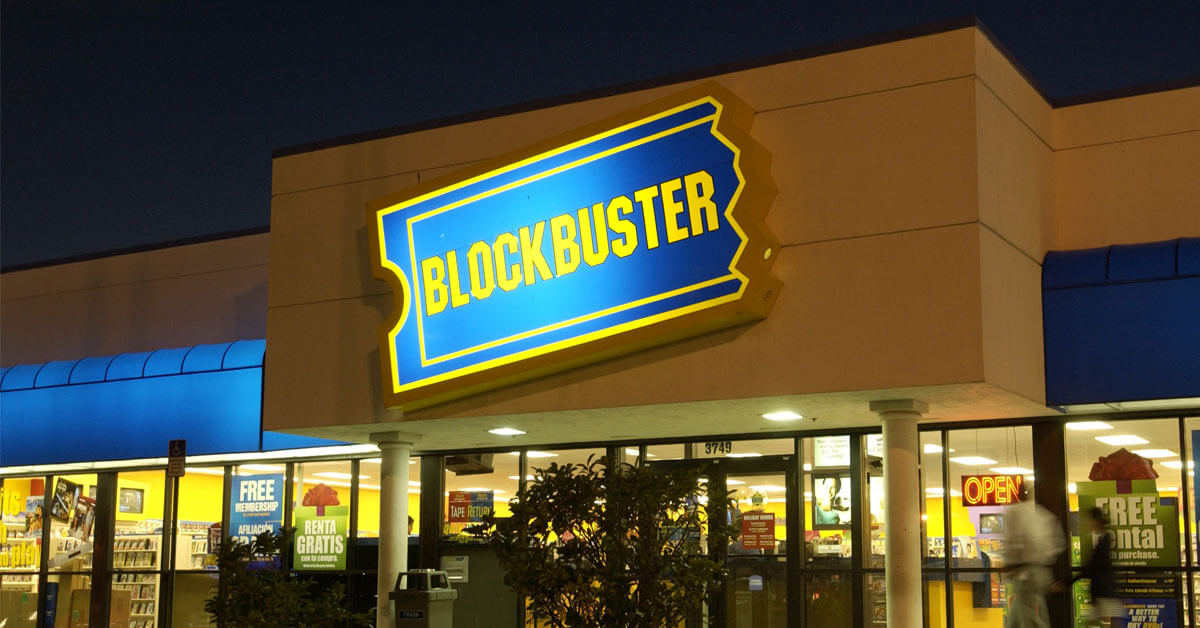The embarrassing fall of Blockbuster
In 2000, Reed Hastings, founder of Netflix, approached former Blockbuster CEO John Antioco. Hastings attempted to sell Netflix to Blockbuster for $50 million. Blockbuster laughed Hastings out of the room.
We all know the ending of this story. Blockbuster went bankrupt in 2010 and Netflix is now worth over $100 billion.
While many remember John Antioco as a fool, he was actually a very competent executive. Antioco was considered a retail genius with a long history of success. Unfortunately, he failed to see how changing consumer preferences would bring his downfall.
Could your funeral home fall like Blockbuster?
“The vast majority of our customers do not dislike the store experience.”
“They like walking around the store. They like picking up the boxes. They like discussing the movies with their fellow customers and the store employees.”
– John Antioco, Blockbuster CEO, 2002
We often hear funeral home owners dangerously repeat the former Blockbuster CEO’s sentiments:
- “Our families don’t want to buy online.”
- “We want to meet our families in person because it’s more personable.”
- “We don’t want to take the meaning out of everything by doing things online.”
Blockbuster can be a cautionary tale for funeral home owners who don’t expect to change. The Internet Generation is coming for the funeral industry. Funeral home owners must understand the impending shift in consumer preferences. Those that meet the new consumer expectations will thrive like Netflix. Those that fail to understand will fall like Blockbuster.
Netflix’s incredible reinvention
Netflix took down Blockbuster with its DVD subscription business- but it didn’t stop there. Its reinvention to a streaming business prevented it from following Blockbuster’s footsteps. Netflix saw that tablet and smartphone sales were growing. It would capture a growing market instead of defending a shrinking business.
In 2011, Netflix cannibalized its DVD subscription cash cow. It took the profits and invested in the lower margin streaming business. Analysts saw the shrinking DVD subscriptions and predicted this to be the end of Netflix. Instead, Netflix continued to dominate as consumer preferences shifted to streaming.
Your funeral home must innovate to survive
Are you seeing the number of your price shoppers increase? What about rising rates of cremations? More people finding you online?
Forward-thinking funeral homes see the signs of a massive shift in consumer preferences. They’ve begun to invest in the capturing this growing market. They’ll be the ones to dominate the industry as their competitors fail to keep up.

